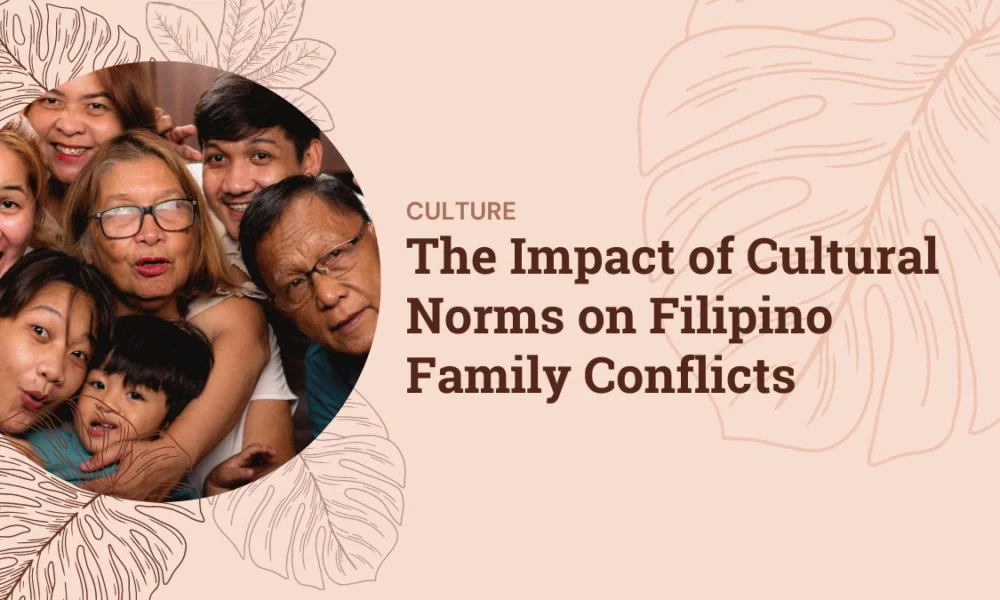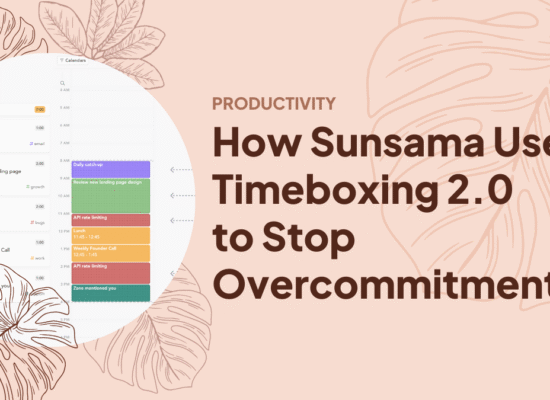Table of Contents
- The Cultural Foundations of Filipino Family Dynamics
- The Generational Divide in Filipino Families
- Common Battlegrounds in Filipino Family Conflicts
- The Silent Cost of Harmony in Filipino Families
- Bridging Tradition and Modernity in Filipino Family Relationships
- The Path Forward for Filipino Families
- A New Harmony: Reimagining Filipino Family Relationships
The laughter around Filipino family dinner tables often masks deeper currents of unresolved tension. We smile, we serve, we maintain harmony at all costs. But beneath this carefully choreographed dance of pakikisama lies a complex reality of Filipino family conflicts that often go unaddressed.
Cultural norms shape not just how we express conflict, but how we perceive it. In Filipino families, these norms create both our greatest strengths and our most challenging obstacles.
We’ve long celebrated the Filipino family’s legendary closeness and resilience. This strength is real and valuable. Yet this same tight-knit structure that protects us can also constrain us when cultural norms prevent necessary conflicts from surfacing, sometimes creating what might be characterized as toxic Filipino culture when taken to extremes.
The Cultural Foundations of Filipino Family Dynamics
Three core values fundamentally shape how conflict unfolds in Filipino households: pakikisama, utang na loob, and respeto. Understanding these family values in Philippines provides the key to decoding family tensions that might otherwise seem puzzling to outsiders.
Pakikisama: The Double-Edged Sword
Pakikisama (smooth interpersonal relationships) prioritizes harmony above individual expression. This value encourages us to maintain peace even at personal cost.
While pakikisama creates cohesive family units, it can also suppress genuine feelings. Research shows this suppression often leads to long-term resentment and passive-aggressive behaviors that eventually emerge in family relationships.
Utang na Loob: Obligation and Expectation
Utang na loob (debt of gratitude) establishes a complex web of reciprocal obligations within families. This value creates strong support systems but can also burden individuals with expectations that limit personal autonomy.
When family members feel unable to fulfill these unspoken obligations—or wish to establish boundaries around them—Filipino family conflicts often result.
Respeto: Hierarchy and Power Dynamics
Respeto (respect) forms the backbone of Filipino family hierarchies. While this value maintains order and tradition, it can create problematic power dynamics.
Family researchers have identified how respeto, while fostering strong bonds, can create “intolerance for differences and a demand for obedience, making one feel controlled and imprisoned.” This dynamic particularly affects parent-child relationships during adolescence and young adulthood.
The Generational Divide in Filipino Families
Perhaps nowhere is cultural tension more evident than in the growing gap between generations in Filipino families. What our grandparents accepted without question, our children openly challenge.
Younger Filipinos increasingly question traditional norms and advocate for open dialogue to resolve conflicts. This contrasts sharply with older generations who often prefer to sweep problems “under the rug” with a shared meal or simple smile.
This shift isn’t merely youthful rebellion. It reflects broader exposure to diverse perspectives through education, global media, and digital connectivity.
Young adults raised with traditional Filipino values but educated in more individualistic contexts often find themselves navigating contradictory expectations. They value family harmony but also seek authentic self-expression.
One young professional from Legazpi City shared: “I love my family deeply, but when we disagree, the expectation to simply ‘respect my elders’ without discussion feels suffocating. I want to honor tradition without sacrificing my voice.”
This tension creates what psychologists call cultural identity conflict—a struggle to reconcile competing value systems within oneself.
Common Battlegrounds in Filipino Family Conflicts
Filipino family conflicts typically cluster around several key areas where traditional expectations and modern realities collide:
Career Choices and Expectations
Career choices remain a frequent source of tension. Parents often expect children to pursue prestigious, stable professions regardless of personal interest or aptitude.
When children choose alternative paths—creative fields, entrepreneurship, or non-traditional careers—conflict often follows. The underlying issue isn’t merely practical concern but perceived violation of utang na loob.
Marriage and Relationships
Marriage and relationships trigger particularly intense conflicts. Traditional expectations about suitable partners, appropriate courtship, and family planning clash with contemporary views on personal choice and compatibility.
These conflicts intensify when religious differences enter the equation, as many Filipino families maintain strong Catholic or other religious identities.
Financial Responsibilities
Financial responsibilities create another friction point. The cultural phenomenon of the “tagapagtaguyod na anak” (breadwinner child) places enormous pressure on eldest or middle children to assume family leadership responsibilities.
When personal aspirations clash with family obligations, the resulting conflicts cut to the core of Filipino identity—where family welfare traditionally supersedes individual desires.
Living Arrangements and Independence
Living arrangements become increasingly contentious as young adults seek independence while families expect multigenerational households. The pandemic has further complicated these dynamics by forcing many families back into shared living spaces.
The Silent Cost of Harmony in Filipino Families
Our cultural emphasis on maintaining smooth relationships comes with hidden costs. The suppression of authentic communication can lead to significant psychological burden, sometimes creating a toxic family culture.
Studies have found that for Filipino adults and adolescents, family conflict and problems related to family cohesion are important predictors for mental health issues. These findings highlight how critical family harmony is within Filipino culture.
The perceived embarrassment from familial stigma often deters individuals from seeking help outside the family unit. This creates a troubling cycle where problems remain unaddressed while emotional damage accumulates. This is particularly challenging when families face additional issues like challenges in ADHD awareness, where cultural stigma may prevent proper diagnosis and support.
The cultural concept of “hiya” (shame or sense of propriety) significantly impacts how we approach conflict resolution. Rather than functioning simply as shame, hiya serves as a regulatory mechanism for social behavior.
It encourages us to act in ways that maintain harmony and avoid causing offense. When Filipino family conflicts arise, this value often leads to indirect communication patterns rather than direct approaches.
These indirect patterns can prolong conflicts by preventing clear understanding of different perspectives.
Bridging Tradition and Modernity in Filipino Family Relationships
How do we honor cultural values while creating healthier patterns of conflict resolution? Several approaches offer promise:
Creating Safe Spaces for Dialogue
Create safe spaces for open dialogue that respect hierarchical relationships while allowing authentic expression. This might mean establishing family meetings where everyone’s voice is welcomed.
One approach is to adapt traditional Filipino conflict resolution methods. The Peace, Security and Reconciliation Office in Mindanao has resolved nearly 100 disputes using culturally-sensitive mediation approaches.
Their philosophy: “Our approach to conflict resolution is to listen, to negotiate and to find an agreement which recognises the interests of both sides. It is not easy work to convince people to step back from conflict, it does not happen overnight, but is a long-term process.”
Leveraging Faith Communities
Leverage faith communities as bridges between traditional and modern approaches. Research recommends implementing evidence-based preventive parenting programs in church settings as a culturally appropriate strategy.
This approach recognizes that religion remains an integral part of Filipino culture and can help overcome the stigma associated with family problems.
Reframing Conflict as Opportunity
Reframe conflict as opportunity rather than failure. Help family members understand that healthy disagreement doesn’t threaten family bonds but can ultimately strengthen them through greater understanding.
Studies of Filipino conflict resolution reveal that those with secure attachment orientations tend to use positive problem-solving approaches, while those with less secure attachment orientations are more likely to be compliant, withdrawing, or engaging during conflicts.
This insight helps explain why some family members respond differently to the same conflict situation.
Establishing Clear Boundaries
Establish clear boundaries that honor obligations while protecting individual wellbeing. Boundaries aren’t rejections of family but necessary structures for sustainable relationships.
Young Filipinos can frame boundary-setting not as rebellion against tradition but as a way to maintain genuine connection without resentment.
The Path Forward for Filipino Families
We stand at a cultural crossroads. The traditional family values in Philippines that have sustained Filipino families for generations remain powerful forces in our lives. Yet the world our children inhabit demands new approaches to resolving conflict.
The challenge isn’t choosing between tradition and modernity but finding integration that honors both.
In practical terms, this means:
- Acknowledging the validity of different perspectives. Both traditional approaches that prioritize harmony and modern approaches that value authenticity have legitimate strengths.
- Creating new family rituals that combine traditional respect with open communication. Some families establish regular “family councils” where hierarchy is temporarily suspended to allow honest discussion.
- Developing bilingual emotional vocabulary that can express conflicts in ways both generations understand. This might mean younger members learning traditional expressions of respect while older members become familiar with contemporary concepts of emotional health.
- Recognizing that cultural evolution is inevitable. Rather than resisting change entirely, families can guide it in ways that preserve core values while adapting to new realities.
A New Harmony: Reimagining Filipino Family Relationships
The future of Filipino family conflicts resolution lies not in abandoning our cultural heritage but in reimagining it for contemporary life.
We can maintain the deep family bonds and collective orientation that distinguish Filipino culture while creating space for more direct communication and individual autonomy.
The result won’t be perfect harmony—no family achieves that. But it can be a more authentic harmony built on mutual understanding rather than suppression.
In this evolution, we honor our ancestors not by rigidly adhering to every tradition, but by carrying forward their core wisdom: that family remains our greatest strength when we face challenges together.
By acknowledging the deep cultural currents that shape our conflicts, we take the first step toward resolving them. Not through simple formulas or complete cultural transformation, but through thoughtful integration of the best of both worlds.
This journey requires patience, as cultural change happens gradually. But each family that finds healthier ways to navigate conflict contributes to a broader cultural shift that benefits future generations.
The laughter around our family tables can become more genuine when the harmony we maintain has room for honest difference. That is a legacy worth creating together.
Key Takeaways
- Filipino family conflicts are shaped by cultural values like pakikisama, utang na loob, and respeto that prioritize harmony over individual expression.
- Generational divides create tension between traditional conflict avoidance and modern needs for authentic communication.
- Establishing healthy boundaries while respecting cultural values can lead to more sustainable family relationships.
Frequently Asked Questions
Frame boundaries as ways to sustain family relationships rather than reject them, and communicate them with respect using culturally appropriate language.
Cultural values like pakikisama (harmony) and hiya (shame) encourage indirect communication to maintain relationships and save face.
When taken to extremes without allowing for healthy expression, traditional dynamics can contribute to stress, anxiety, and unresolved tensions.






